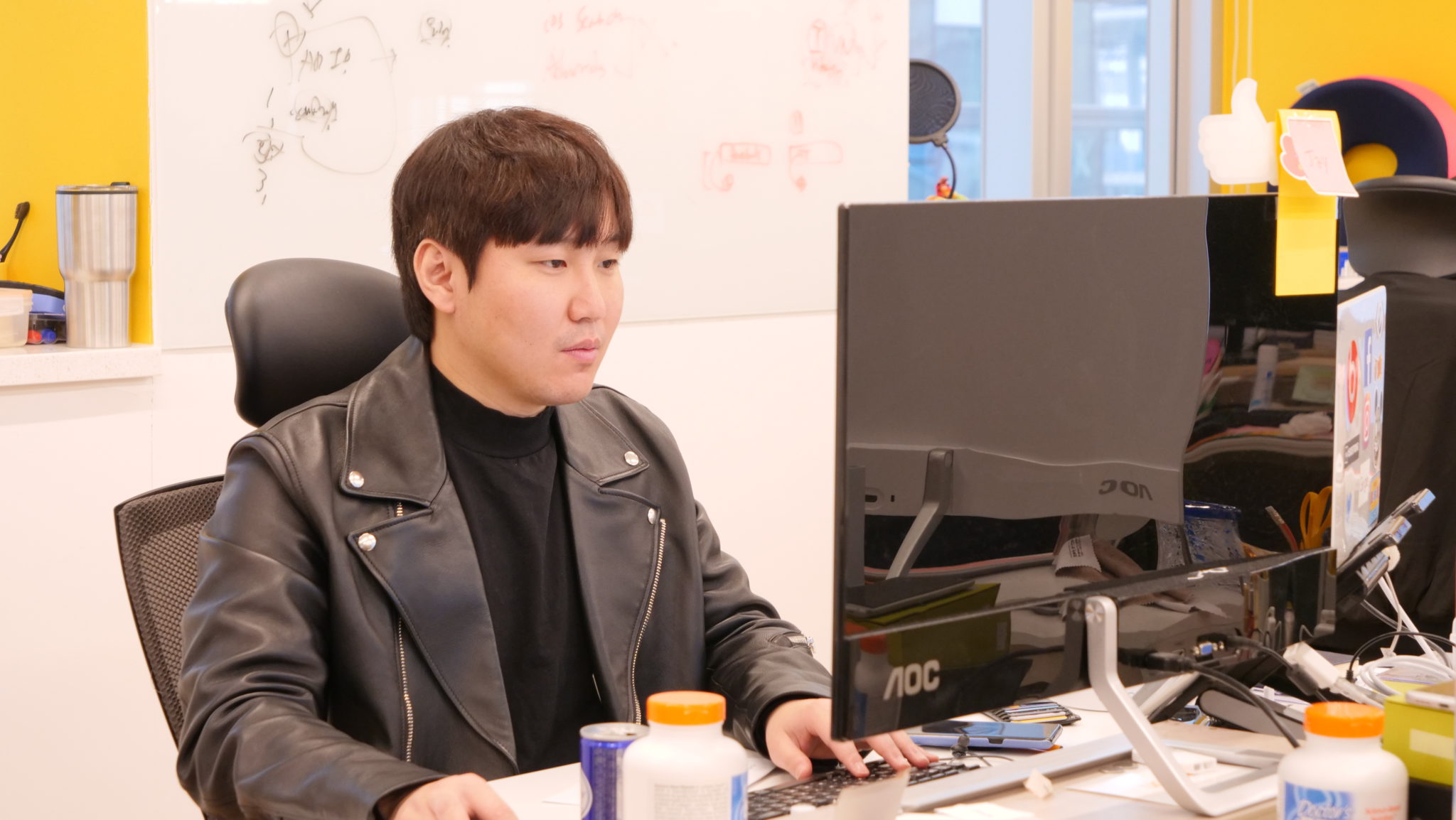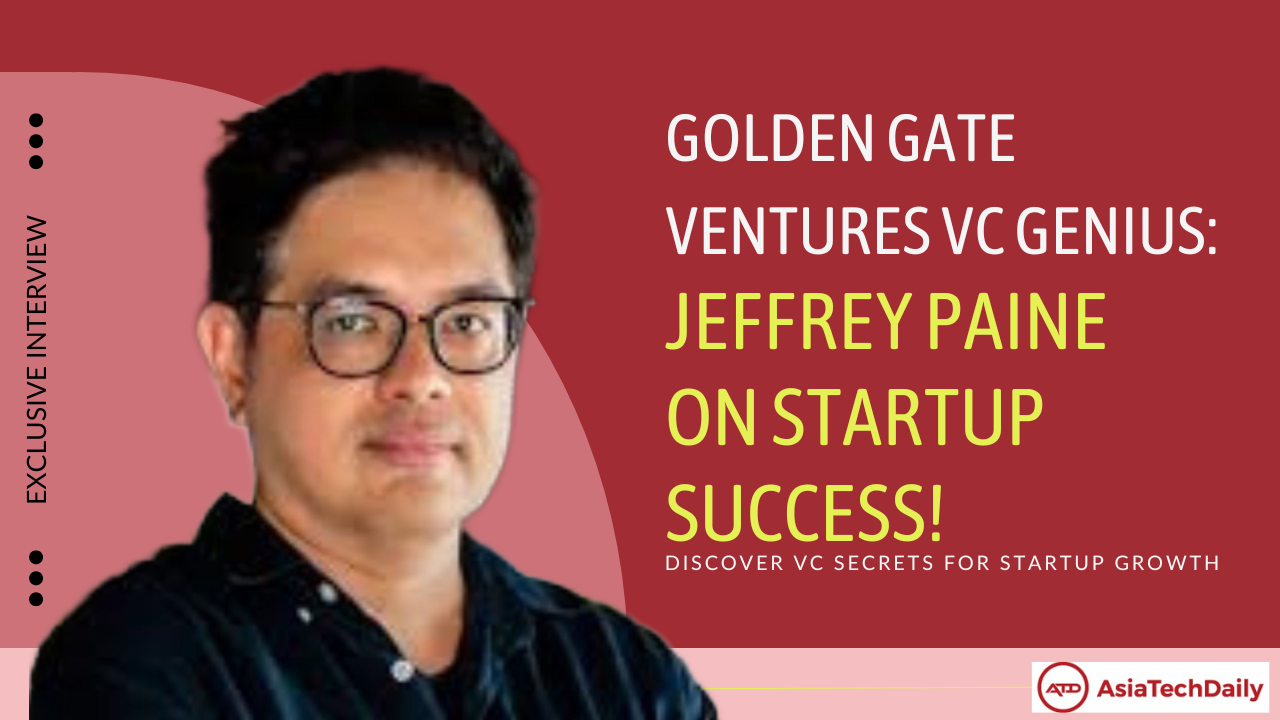AsiaTechDaily – Asia's Leading Tech and Startup Media Platform

How Jay Lee, CMO Spoon Overcame Every Failure To Build Spoon And Successfully Raise $60M?
Jay Lee is the Chief Marketing Officer at Spoon. Spoon operates as a real-time personal audio broadcasting platform. It is designed to share stories, ideas, favorite music, and more. Also, it allows its users to create personal broadcasts and listen to user-generated content.
Spoon provides a space where everyone can connect and share their thoughts about everyday, real-life issues with just their voice. Spoon is based in Seoul, South Korea.
Jay’s role includes establishing marketing strategies for Korea, Japan, Indonesia, Vietnam, MENA, and the US. He specializes in Digital and SNS Marketing. Jay was also selected by Google and Facebook for marketing best practices in 2018.
In an exclusive interview with AsiaTechDaily, Jay Lee says:
“I believe the majority of startup co-founders want to make everything flawless. However, that may cause problems to make the right decision. I would say the quality is way more important than quantity itself, and we have to focus on the most important matters.”
Read on to know more about Jay’s successful journey and how he overcame every failure.
Please tell me about your background, and what are you working on currently?
Jay Lee: I am Jay Lee, CMO at Spoon. I am currently in charge of Global Marketing and an expert in Performance Marketing. I studied Physical education when I was in my university, which is not quite related to what I am doing now. After graduation, I have found myself in Sports Marketing; since then, my career has begun as a Marketer.
What motivated you to get started with your company, Spoon?
Jay Lee: So, the story begins with Jun, COO in Spoon. He is one of the most trustworthy persons I have ever met in my life. When he set the business at first, he had suggested I work with him, and I just said ‘YES.’ Because he and I, myself, knew that ‘Trusted people’ matter a lot when you start a company which is the most important asset. It also leads to making a better product and service. I still truly believe that working with GOOD people is the biggest motivation I could get.
What is your current main product, and (If there is any) can you share any product pivot story from founding to the current product?
Jay Lee: Mykoon now operates a real-time audio broadcasting platform called’ Spoon,’ but Spoon was not our first service. Back in the early 2000s, most of the Android phone was designed to be separable. So, people used to discharge their batteries from their phones to make it recharge and owned spare ones. From that idea, we had a service called ‘만땅’ (Manttang), providing a fully-charged cell phone battery to people to reduce their time to charge their own. However, since the ‘all-in-one’ design of mobile has become a trend, our previous service failed. After the failure, we struggled a lot. But we did not give up on it. In fact, we realized one thing that we need is better communication with sincerely in this challenging situation. After, we got this incredible idea, “What if we can connect people with their own stories? What if we make a space for people for a pep talk?”
Such questions and thoughts brought an idea of our service ‘Spoon.’
How have you attracted users and grown your company from the start?
Jay Lee: ‘Contents’ and the ‘Users’ are the key to a platform like Spoon. When it comes to getting a user side, we are able to improve and control the marketing cost. Yet, content is another story. Depending on the content, it may affect user retention and the quality of the service itself. Therefore, it is compulsory to communicate endlessly with users and figure the right content.
What’s your business model, and how have you grown your revenue? What strategy worked best?
Jay Lee: There are DJs and listeners in Spoon. Anyone could be a DJ or a listener. For example, if I am a fan of the broadcasting or the DJ himself, he could send a sticker as a gift to the broadcaster, and we make the revenue through that transaction commission. This is our revenue source. I assume there are 3-steps of strategies to increase the revenue. Firstly, we should gain the traffic more efficiently. Secondly, we need to deliver the right content for the right user. A diversity of content is one of the most critical factors for that. Lastly, I would say it’s ‘Retention.’ It is also related to the interaction itself with users, and it certainly leads and affects the revenue.
How much money (funding) have you raised in total so far? When was the recent funding round?
Jay Lee: We have got invested approximately USD-60M so far.
The very recent one was December 2019.
How do you decide when to go out for fund-raising? What were the internal decision processes in determining when to begin fund-raising, and what were the logistics for this?
Jay Lee: Investment is needed to accelerate growth. I believe that there must be a clear and define growth and strategy goal of leveraging the investment. Once these detailed plans are set, we discuss and share even with our members to get their consent.
How many investors have you (your co-founder) met so far and which among them have invested in your past funding rounds? And how long does it take on average to finalize each funding round?
Jay Lee: Mykoon ran two different types of services so far; ‘Spoon’ and the previous one was called ‘Manttang’. We were able to meet many investors for the growth of our services. Including angel investments, I assume there were more than 100 places. However, only about 10% of them have invested in us. It shows a big difference in each and every round. There is a big difference in ending each round, and on average, it seems to have been spent 4 to 5 months.
How did you meet these investors, and which channels worked best for you?
Jay Lee: A chance of having a meeting with investors differs depending on the current stage of investment. In the early stage, we actively attended in offline events in venture forums, and we also used to send cold emails. Afterward, we participated in startup content to try to be recognized externally for the value of our service and the item. Then after, we were able to be introduced to a new investor through other investors.
What are the biggest challenges you’ve faced and obstacles in the process of fund-raising? If you had to start over, what would you do differently? (Your insight or advice on this would be very helpful for startups)
Jay Lee: Getting an investment is an act of adding value to the company. The value is based on its performance, which data to prove to investors. This may not be true, though, and I think metrics that can affect the value of a company are changing little by little. For that, we certainly need to think deeply about what data to prepare and develop.
What are your milestones for the next round? And what are your goals for the future?
Jay Lee: We would love to give full of joy and fun to our users through various stories. The more people share their stories, the more interaction will occur between the users.
What are the most common mistakes (co) founders make when they start a company? (or What should all first-time startup founders know before they start their business?)
Jay Lee: I believe the majority of startup co-founders want to make everything flawless. However, that may cause problems to make the right decision. I would say the quality is way more important than quantity itself and we have to focus on the most important matters.
What do most startups get wrong about marketing?
Jay Lee: I would definitely say ‘Analysis.’ Since the market has become incredibly competitive with excellent apps, it has become tough to gain traffic organically; without paid Marketing. That is why a lot of startups do paid marketing itself, I believe. However, analyzing itself is much more important than what people think. App marketing is not just about ‘CPI’ (Cost Per Install) itself. There is much data you have to look at and analyze deeply.
What’s the best advice you’ve ever received? And What advice do you have for someone who is interested in doing similar things like yours or in a similar direction?
Jay Lee: There are two things that I always keep in mind.
The first one is, “It is hard to simplify.” and the other one is, “Set your priority. Focus on them”
What are the one or two things that you would do differently if you could go back to 10 years ago?
Jay Lee: I think nothing much could be very different from now. I probably make things simple and focus on what matters with priorities.
Are you looking to secure investment for your startup or a keen startup enthusiast, keep an eye on our interview section.
Follow Asia Tech Daily to know about the innovative startups and how they are revolutionizing the ecosystem.





